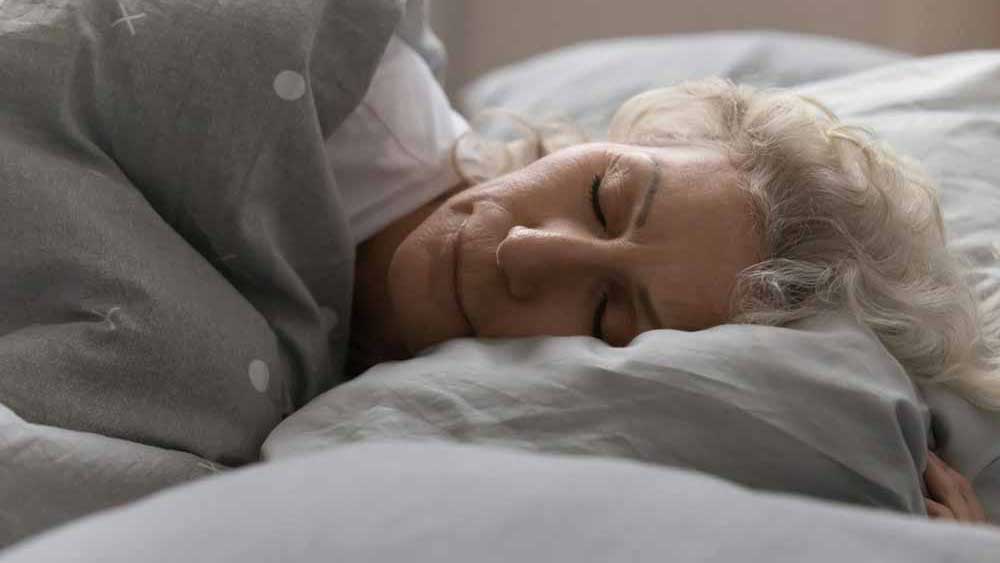

5 Reasons You’re Not Sleeping as Well This Year
March 2022 is Sleep Awareness Month—and the second anniversary of the point when COVID-19 was declared a pandemic. Experts say the subsequent huge changes in our lives increased the rate of sleep problems, especially among older adults. If you’re having trouble sleeping, here are some possible reasons:
You’ve experienced losses. Most of us have had our lives upended by the pandemic. Our jobs, social connections and family life have been impacted, and thousands of us have lost friends and loved ones to COVID-19. University of Arizona psychology professor Mary-Frances O’Connor says that this can affect our sleep. “We know that, for many people, experiencing the death of a loved one is followed by sleep disruption—not surprisingly, given how stressful it is to lose a loved one,” she says, also noting that sleep disorders can make it harder to process our grief.
You had COVID-19. As more and more people have contracted the coronavirus, experts are learning more about “long COVID,” in which patients deal with symptoms that persist for months and even years. Neurologists report that a certain number of these “long haulers” are experiencing sleep disorders, such as insomnia, restless legs syndrome and pain-related sleeplessness. Research is underway to help understand this connection and to distinguish it from “coronasomnia,” the term psychologists coined for sleep problems that stem from pandemic-related anxiety about one’s health, financial issues and the situation in general.
You’ve got “the worries.” During, and even before, the pandemic, many of us have experienced falling asleep normally—only to wake up in the night thinking about things that trouble us. “Even if I don’t have anything in particular to worry about, my brain will rummage around until it finds something,” one insomniac wryly reported. Counseling can help us deal with our underlying concerns. “Sleep is a place where, if other things aren’t going well in life, it shows up and you can’t ignore it,” says University of Washington sleep medicine physician Dr. Vishesh Kapur. “There’s only so much you can do by just dealing with it as a sleep problem, rather than a symptom of the whole context.” Sleep experts also say that cognitive behavioral therapy for insomnia (CBT-I) can help us control those swirling middle-of-the-night worries.
You’re drinking more alcohol. Only a few weeks into March 2020, Kaiser Health News reported that the sales of beer, wine and all alcohol in the U.S. jumped by 55%. Many people continue to consume more alcohol than before, including older adults. Before you have that second “quarantini,” consider the effect on your sleep. You might have a “nightcap” to help you drift off to sleep, but in fact, alcohol interferes with good-quality sleep, making it more likely that you’ll be wakeful in the middle of the night and be sleepy during the day.
You’re practicing “revenge procrastination.” You worked all day, did housework in the evening, and now it’s time to relax. Oh no, it’s 11 p.m. already! University of Washington experts say we might be tempted to put off bedtime to read, watch TV or go on the internet—even at the expense of getting enough sleep. It’s worse these days, they say, “probably because many people have been working from home and experiencing a blurring of the lines between work and personal life.” They say better time management can help us carve out some “me time” earlier in the evening. We also should rethink our priorities to consider sleep as a rewarding, pleasant activity, as well!
Seek help for sleep problems
Natural age-related changes in our sleep patterns can make it harder to fall asleep and stay asleep, as can health problems such as arthritis, bladder problems and depression. Certain medications also cause wakefulness.
Sleep disturbances should be addressed because poor-quality sleep raises the risk of heart disease, diabetes, high blood pressure, obesity and even dementia. And sleep is the time when our brains clean out harmful waste products and organize memories. So if you’re having trouble sleeping, talk to your doctor. Certain lifestyle changes might be recommended:
- Manage health conditions that cause pain or anxiety.
- Follow a regular sleep schedule.
- Reduce noise and light in your bedroom.
- Increase physical activity during the day.
- Ask for a medication review.
- Avoid caffeine after noon, or entirely.
- Avoid alcohol in the last hours of the day.
- Put away electronic devices several hours before bed.
- Choose soothing, calming evening activities.
- Seek counseling to cope with worries and losses.
Your doctor also might refer you to a sleep specialist to evaluate and treat your problem.







